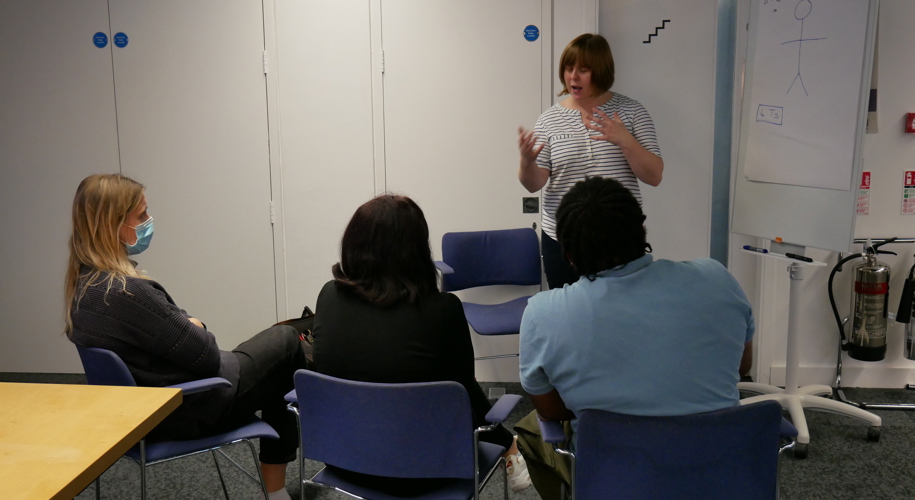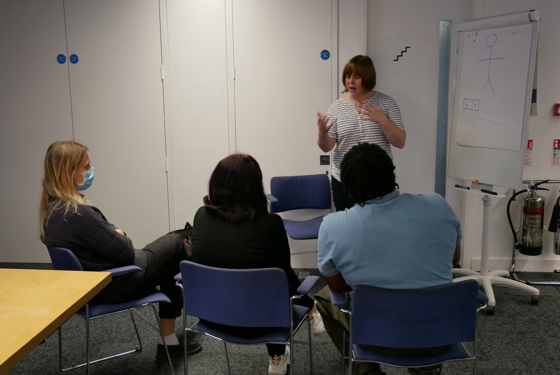Overview of the Annual Review of Competence Progression (ARCP), including how to prepare, what to expect at the ARCP meeting, and possible ARCP outcomes.
Overview of the Annual Review of Competence Progression (ARCP), including how to prepare, what to expect at the ARCP meeting, and possible ARCP outcomes.
Preparing for your ARCP
To prepare for your ARCP:
- You should ensure that you’ve achieved all the standards for your training year in the training matrix of educational progression to ensure satisfactory progress
- You and your Educational Supervisor need to meet to complete the Educational Supervisor’s Report together, to record your educational achievements and the competencies you’ve completed that year - these forms are in your ePortfolio
- Your Educational Supervisor will complete the structured reference section of the report and the TO2 form (a summary of your TO1, or team observation, forms)
- You must also complete the Trainee Evaluation Form on your ePortfolio
ARCP and revalidation
For information on how revalidation affects the ARCP process, please visit the revalidation for trainees section of the site.
The ARCP meeting
The ARCP is a formal meeting, but the ARCP panel will be understanding. There will be at least three panel members, who will be appointed by the deanery’s Specialty Training Committee or equivalent group. Either your Postgraduate Dean (or deputy) or a Training Programme Director must be on the panel. Other possible panel members are the chair of the Specialty Training Committee, an RCOG representative, an Educational Supervisor or an Associate Director/Dean. There may also be a lay representative.
For academic trainees (where an annual academic assessment outcome is also required), in addition to the standard ARCP panel members there should be two academic representatives, neither of whom should have been involved in the trainee’s academic programme. For more information, please read the guidance on the annual academic review process.
The panel will have access to your ePortfolio and any other documentation you’ve provided. If you haven’t met some of your targets, you’ll need to provide a reasonable explanation and provide evidence of how you plan to rectify the situation and make progress.
Your evidence must be comprehensive and your documentation should outline audits and projects in detail. If you don’t have any evidence, the panel may suspect that your role was limited and you have minimal experience, and may request an enquiry.
How to ensure progression to the next training year
Failure to achieve learning targets and a poor attitude are common reasons for failure to progress, but a lack of collated evidence is another. To ensure progression:
- Use the RCOG’s matrix of educational progression as a guide (you can download this from the block at the top of this page)
- Set a good plan, and keep planning
- Review targets frequently
- Ensure you collate evidence throughout the year – don’t leave it until the last minute
- Keep a record of your development and experiences – keeping regular reflective notes of experiences will be invaluable throughout your career
- Keep up to date with workplace-based assessments (WPBAs) – undertake them periodically to demonstrate progression; remember there’s no such thing as a ‘failed’ WPBA (each assessment is useful to you and your assessor whether you’ve shown complete competence or not)
- Upload your assessments to your ePortfolio on a regular basis, not just before your ARCP
- Keep your evidence and documentation well-ordered – like patient records, training documentation is an official record
- Take your training seriously – be professional and conscientious
ARCP outcomes
Your ARCP panel will issue one of the following outcomes:
- Outcome 1: if the evidence provided at your ARCP is satisfactory, the panel will recommend outcome 1, indicating successful transition to the next training year
- Outcome 2: if there are any deficiencies in your training or areas of poor performance, the panel will recommend outcome 2, which is a recommendation for targeted training to help you address these issue; if you complete this targeted training successfully, there’ll be no delay to your progression to CCT or CESR(CP)
- Outcome 3: if the panel identifies that you require a formal additional period of training that will extend the duration of your training programme, they will recommend an outcome 3
- Outcome 4: if there’s still insufficient and sustained lack of progress despite having had up to 1 year of additional training to address concerns over progress, the panel will recommend outcome 4, which would release you from the training programme
The ARCP panel will issue an appropriate Annual Assessment Outcome Form. You must keep a copy in your ePortfolio (the form will be made available on the ePortfolio in 2013–14) and forward a copy to the Trainees’ Coordinator at the RCOG.
Your final ARCP
Within 6 months of your anticipated CCT/CESR(CP) date, you’ll be called for your final ARCP, which will review the entirety of your training. Subject to satisfactory completion, you’ll be issued with an outcome 6.
- You’ll need to submit your signed outcome 6 form to the Education Policy and Quality department at the RCOG
- The secretary to the Specialty Education Advisory Committee (SEAC) at the RCOG will then contact you with the relevant forms for you to complete
- The RCOG will then make a recommendation to the General Medical Council (GMC) that you’ve completed the relevant training and are eligible for the award of the CCT or CESR(CP)
For more information about the CCT/CESR(CP), please visit the certification of training section of the site.
Find out more
More information about the ARCP process, panel and outcomes is available in the COPMed Gold Guide.


MRCOG exams
Information on how to prepare for the Part 1 and Part 2 MRCOG


Curriculum
The complete specialty training curriculum for O&G – core, ultrasound, ATSMs, subspecialty and academic
